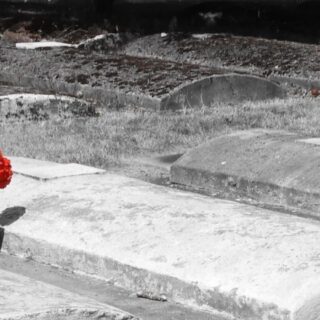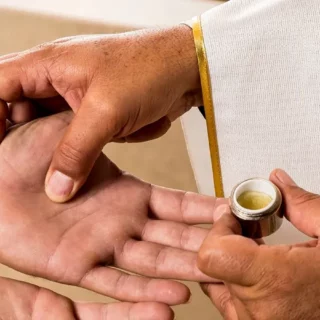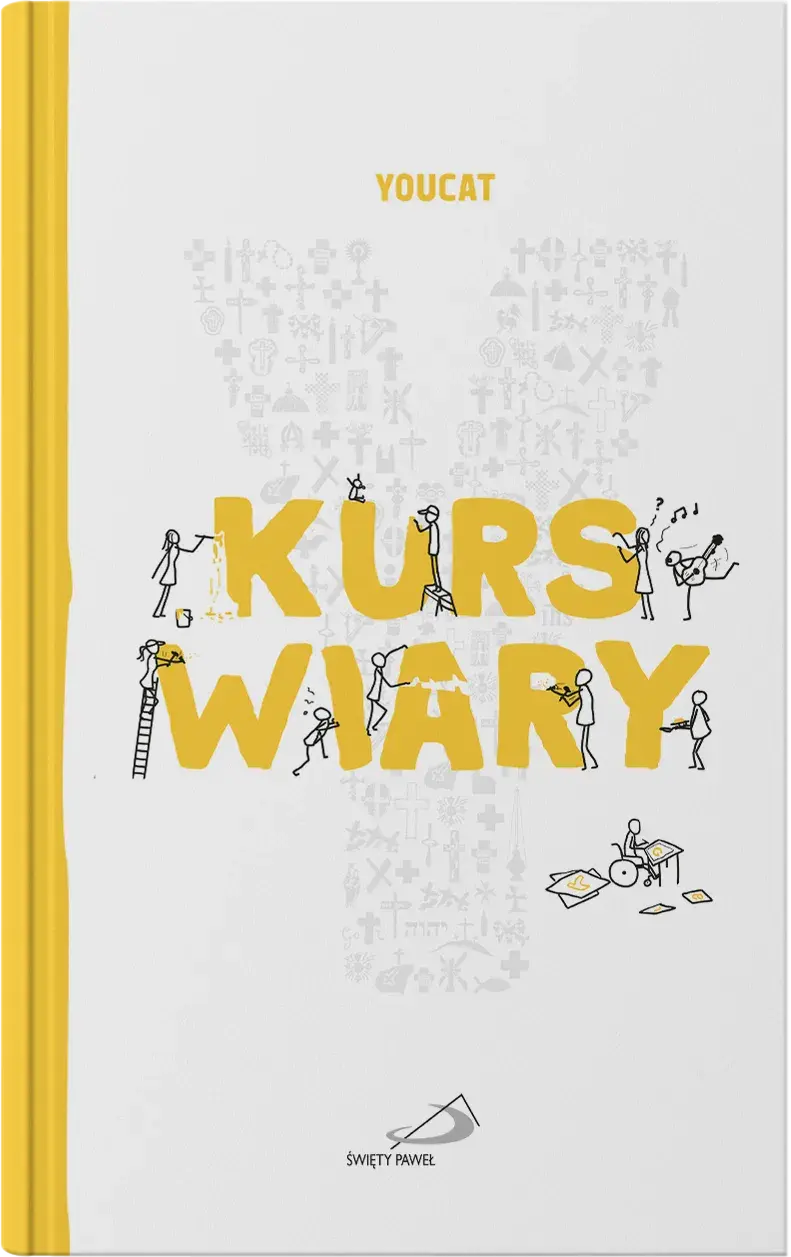

Credopedia
Uzależnienie: Tęsknota za czymś więcej
Za każdym uzależnieniem kryje się tęsknota. Ludzie szukają ekstazy, niekończącego się uczucia szczęścia i spełnienia. Różne rodzaje uzależnień mogą na chwilę stłumić poczucie wewnętrznej pustki, wywołując „uczucie podniecenia”. Jest to jednak dalekie od tego, za czym naprawdę tęskni osoba uzależniona.
- Uzależnienie jako zachowanie iluzoryczno-kompensacyjne
- Za każdym uzależnieniem kryje się tęsknota
- Ludzie uzależnieni zamieniają wolność na niewolę
- Dlaczego spożywanie substancji odurzających jest grzechem?
- Droga do uzdrowienia
- Zróbmy coś wspaniałego ze swoim życiem: Nigdy nie jest za późno
Uzależnienie jako zachowanie iluzoryczno-kompensacyjne
Czy doświadczyliśmy tego uczucia? Możemy surfować po internecie całymi dniami lub nieustannie wpatrywać się w smartfon, czekając na wiadomość, na kolejnego lajka lub komentarz, który sprawi, że czujemy się z kimś związani i docenieni. Możemy nawet nie zdawać sobie sprawy, jak szybko minął czas i jak niewiele dnia tak naprawdę spożytkowaliśmy na coś innego.
W dzisiejszych czasach istnieje wiele sposobów na uśmierzenie bólu emocjonalnego, wewnętrznego niepokoju lub poczucia pustki i na ucieczkę od własnych negatywnych myśli i uczuć. Osoby, które przeżyły traumatyczne doświadczenia, są szczególnie narażone na sięganie po substancje uzależniające lub angażowanie się w zachowania uzależniające jako strategię kompensacyjną. W krótkiej perspektywie uzależnienia mogą przynieść szybką ulgę, pozwalając uniknąć nieznośnych objawów. W rzeczywistości jednak problemy narastają i zaczyna się błędne koło, z którego ciężko jest się wyrwać.
Istnieje wiele różnych rodzajów uzależnień: uzależnienie od internetu, od pornografii, objadanie się, anoreksja, alkoholizm, nikotynizm, narkomania i wiele, wiele innych. Wszystkie one mają jedną wspólną cechę: maskują głęboką tęsknotę za zaspokojeniem.
Za każdym uzależnieniem kryje się tęsknota
Pytania, nad którymi należy się zastanowić, brzmią nie tylko: Jak wyleczyć się z uzależnienia?, ale także: Czego tak naprawdę szukamy, sięgając po tę czy inną uzależniającą substancję? Jakie potrzeby i pragnienia pozostały niezaspokojone i niespełnione? Jak możemy wypełnić obecną pustkę na dłuższą metę?
Uzależnienie to poszukiwanie. Poszukiwanie czegoś, co wypełni pustkę, którą czujemy głęboko w sobie.
Jako istoty duchowe, ludzie są stworzeni do nieba, do niekończącej się ekstazy. Nic ulotnego i tymczasowego, nawet relacje międzyludzkie – jakkolwiek piękne i owocne by nie były – nie może dać nam trwałego i pełnego spełnienia. Jak więc np. narkotyki lub inne substancje uzależniające mogłyby się sprawdzić?
Jedyne, co daje ludziom trwałą satysfakcję, to coś, czego nie mogą utracić. Coś wiecznego. W głębi duszy każda ludzka istota tęskni za wiecznością, którą chrześcijanie nazywają Bogiem. Tylko On może zaspokoić najgłębsze tęsknoty ludzkiego serca i ducha.
Ludzie uzależnieni zamieniają wolność na niewolę
Substancje uzależniające – czy to alkohol, czy leki, a tym bardziej nielegalne narkotyki, takie jak heroina czy kokaina – zmieniają naszą świadomość, zniekształcają nasze postrzeganie rzeczywistości i stopniowo rujnują nasze zdrowie. Zamieniają naszą wolność w niewolę.
Substancje uzależniające osłabiają wolę. W rezultacie osoba uzależniona staje się znacznie bardziej podatna na pokusy zła. Święty Piotr Apostoł ujmuje to następująco: „Bądźcie trzeźwi! Czuwajcie! Wasz przeciwnik, diabeł, krąży jak ryczący lew i szuka, kogo by pożreć. Mocni wiarą stawiajcie mu opór” (1 P 5, 8-9),
Uzależnienie od substancji może powodować różne objawy. Niektórzy doświadczają kompulsywnego pragnienia nieustannie powtarzających się dawek, braku koncentracji, zaburzeń tożsamości, lęków i ataków paniki, depresji, halucynacji, niedoboru odporności, uszkodzeń narządów wewnętrznych i zewnętrznych, niepłodności, zawału serca, a nierzadko nawet śmierci. Katolicy nie powinni być niewolnikami własnych pragnień i uzależnień; są przecież powołani do wolności!
Dlaczego spożywanie substancji odurzających jest grzechem?
Zażywanie narkotyków i innych substancji uzależniających jest grzechem, ponieważ pozbawia nas wewnętrznej wolności. Jest to również akt samozniszczenia, a zatem naruszenie życia (por. częścią YOUCAT 389).
Nauka Kościoła katolickiego wskazuje, że tylko Bóg jest absolutnym Panem każdego ludzkiego życia – i swojego ciała: „Czy nie wiecie, że wasze ciało jest świątynią Ducha Świętego, który jest w was? Macie Go od Boga i nie należycie już do siebie. Bóg przecież wykupił was za wielką cenę. Oddajcie więc Bogu chwałę w waszym ciele!” (1 Kor 6, 19-20).
Osoba uzależniona musi zdać sobie sprawę z tego, że to, co robi, nie jest dobre. Ani dla niej, ani dla otoczenia. I że grzeszy, jeśli świadomie i dobrowolnie naraża swoje zdrowie.
Droga do uzdrowienia
Jeśli osoba uzależniona pragnie doświadczyć wyzwolenia, musi zajrzeć w głąb siebie i zadać sobie ważne pytania:
Dlaczego to robię? Które z moich potrzeb nie są zaspokajane? Jak mam żyć? Jak mogę wypełnić pustkę, którą próbuję ukoić narkotykami, alkoholem, hazardem, pornografią, objadaniem się itp.? Jak mogę na nowo nawiązać kontakt ze sobą i z innymi ludźmi? A przede wszystkim, jak nawiązać kontakt z Bogiem?
Zastanawianie się nad swoimi myślami, uczuciami i zachowaniem jest również znane w Kościele katolickim jako rachunek sumienia, często kojarzony z przygotowaniem do sakramentu pojednania i przebaczenia. Poprzez szczery rachunek sumienia wierzący uznaje swoje grzechy i żałuje za nie. Postanawia postępować lepiej w przyszłości i obiecuje unikać wszelkich pokus, które mogłyby go doprowadzić do grzechu.
W sakramencie pojednania i przebaczenia, Kościół katolicki oferuje szansę na głębokie uzdrowienie. Każda spowiedź przełamuje moc grzechu. Osoba pokutująca stopniowo staje się bardziej wolna i zyskuje siłę do walki z własnymi słabościami i nałogami.
Połączenie wsparcia duchowego (spowiedź, rozmowa duchowa) z profesjonalnym wsparciem psychologicznym (na przykład terapią) jest wysoce zalecane. Wiele organizacji kościelnych wspiera osoby w kryzysie, umożliwiając im rozpoczęcie życia od nowa.
Zróbmy coś wspaniałego ze swoim życiem: Nigdy nie jest za późno
Święty Augustyn z Hippony (*395 – †430) w młodości wiódł rozwiązłe życie. Szukał szczęścia tam, gdzie go nie było, aż spotkał Boga! W ten sposób „światowy narkoman” stał się teologiem i biskupem. I świętym Ojcem Kościoła! Augustyn potrafił zostawić przeszłość za sobą, ponieważ sobie przebaczył. Ale przede wszystkim pozwalał Bogu na przebaczenie, raz po raz, aż doszedł do świętości!
Wszyscy jesteśmy powołani do świętości! Nieważne, gdzie teraz jesteśmy. Nigdy nie jest za późno. Nie zadowalajmy się chwilową satysfakcją. Jesteśmy warci o wiele więcej!
Tylko Bóg może zaspokoić wszystkie nasze tęsknoty, pragnienia i potrzeby. On chce nam pomóc. Ale my też musimy tego chcieć. Odwagi! ∎

YOUCAT Digital
Odkryj nasze produkty cyfrowe, które pomogą ci wzrastać w wierze i samemu stać się misjonarzem.






